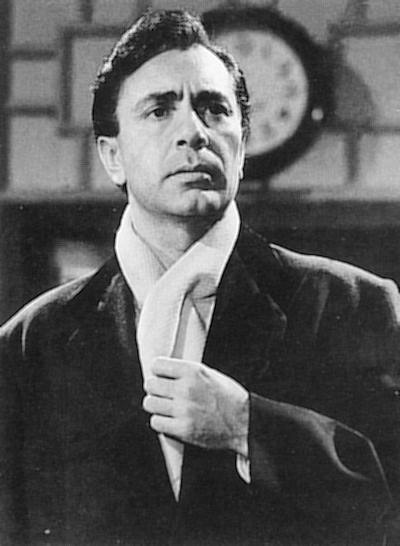Balraj Sahni: 7 Life-Changing Moments That Made Him a Legend
Balraj Sahni, known for his exceptional versatility and commitment to the art of acting, is a name that resonates with film lovers even decades after his death. His legacy as one of India’s finest actors transcends the silver screen, having left an indelible mark on both Indian cinema and society. Balraj Sahni’s journey from a humble beginning to becoming a cinematic icon is not only inspiring but also showcases the essence of dedication and hard work. In this article, we’ll delve into the life, contributions, and lasting impact of this legendary figure, focusing on seven transformative moments that defined his career and character.
Early Life and Struggles
Balraj Sahni was born on May 1, 1920, in Rawalpindi, which was then a part of British India (now in Pakistan). Growing up in a middle-class family, Sahni’s early life was marked by a passion for literature and the arts. He earned his degree in English literature from the prestigious Government College, Lahore, where he developed his love for theatre and storytelling.
Sahni’s interest in acting led him to pursue a career in the performing arts, but not without initial struggles. Like many others in the early days of Indian cinema, he faced rejection and disappointment before gaining recognition. His breakthrough came when he joined the IPTA (Indian People’s Theatre Association), where he gained experience in stage productions and became known for his naturalistic style.
Rise to Fame in Indian Cinema
Sahni’s first significant role in films came in 1946 with Insaaf; however, it was his performance in the classic film Do Bigha Zamin (1953) that solidified his place as a leading actor in Indian cinema. Directed by Bimal Roy, the film depicted the struggles of a farmer trying to save his land from being taken by the landlords. Sahni’s portrayal of the hardworking, emotional peasant, Shambu, who faces insurmountable odds to save his livelihood, was nothing short of extraordinary.
The film not only won numerous awards but also cemented Sahni’s reputation as a versatile and deeply emotional actor. His ability to portray both strength and vulnerability in his roles became one of the trademarks of his acting style. Balraj Sahni’s dedication to bringing realism to the screen was revolutionary during an era when exaggerated performances were more common.
A Man of Strong Values
Off-screen, Balraj Sahni was known for his strong moral compass and his commitment to social issues. He was actively involved in progressive causes and strongly believed in the power of the arts to drive social change. His personal life was a reflection of his values — he was deeply involved in the independence movement and the struggles of the common man. His films often portrayed the issues of rural India, working-class struggles, and the harsh realities of life, all of which resonated deeply with audiences.
His personal commitment to social justice extended beyond the silver screen. Balraj Sahni was a dedicated supporter of the Indian People’s Theatre Association (IPTA) and later the Progressive Writers’ Association. Through these platforms, he not only contributed to the arts but also used his influence to address political and societal issues that were of great importance during the time.
Important Films and Roles
In his long and distinguished career, Balraj Sahni acted in over 100 films, spanning across genres. While Do Bigha Zamin remains his most iconic performance, Sahni’s body of work also includes films like Sampoorna Ramayan (1959), Bhabhi Ki Chudiyan (1961), and Waqt (1965). In each of these films, his dedication to his craft was evident — from his portrayal of the vulnerable father in Ghar Sansar (1958) to his powerful role in Haqeeqat (1964), Sahni always brought depth to his characters.
In Waqt, a film about family bonds and loss, Sahni’s performance was exceptional, demonstrating his versatility in both comedic and tragic roles. His impeccable dialogue delivery and strong emotional range made him a beloved actor in the golden era of Bollywood.
A Champion of Social Issues
Beyond his cinematic work, Balraj Sahni was an active advocate for social change. He used his platform to draw attention to societal issues such as poverty, class struggles, and the plight of farmers. Through films like Do Bigha Zamin, he highlighted the harsh realities of rural India, making audiences empathize with the lives of those struggling to survive.
His dedication to these causes was not just seen on-screen but also in his personal life. He was known for taking a stand on issues such as poverty and inequality, and he actively participated in movements that sought to bring about positive change in society.
Legacy and Recognition
Balraj Sahni’s contribution to Indian cinema was formally recognized when he was posthumously awarded the prestigious Filmfare Award for Best Actor for his role in Waqt. Though his life was cut short at the age of 57, his impact on the Indian film industry has been immeasurable. Sahni’s work continues to inspire filmmakers, actors, and audiences to this day.
In addition to his Filmfare Award, Sahni received numerous accolades, including recognition from the government of India for his contribution to the arts. His legacy also lives on through the work of his children, particularly his son, Parikshit Sahni, who also became an actor.
Balraj Sahni’s Enduring Influence on Cinema
Balraj Sahni is not just remembered for his stellar performances in films, but also for his ability to bring authenticity to his roles and challenge the norms of the industry. In a time when acting often relied on melodrama, Sahni’s subtle and realistic approach changed the landscape of Indian cinema. His performances set a new standard for acting, encouraging future generations of actors to approach their craft with authenticity and emotional depth.
FAQs About Balraj Sahni
Q: What was Balraj Sahni’s most iconic role?
A: His portrayal of Shambu in Do Bigha Zamin (1953) remains his most iconic role, where he showcased a deep emotional range.
Q: Did Balraj Sahni work in films other than Hindi cinema?
A: Yes, Sahni worked in various regional films, including Punjabi and Bengali cinema, showcasing his versatility as an actor.
Q: Was Balraj Sahni involved in social activism?
A: Yes, Balraj Sahni was a passionate advocate for social issues, especially regarding the plight of farmers, poverty, and class struggles, which he often addressed in his films.
Q: What was Balraj Sahni’s contribution to Indian theatre?
A: Apart from his film career, Balraj Sahni was involved in the Indian People’s Theatre Association (IPTA), where he contributed significantly to the development of Indian theatre.
Q: How did Balraj Sahni pass away?
A: Balraj Sahni passed away on April 13, 1973, due to a heart attack.
Conclusion: A Timeless Legacy
Balraj Sahni’s life and career embody the ideal of dedication to one’s craft and the importance of using one’s platform for societal good. Through his films and his activism, he left behind a legacy that continues to inspire actors, filmmakers, and ordinary people alike. His emotional performances, his commitment to realism in cinema, and his advocacy for social change have immortalized him as one of the most influential figures in the history of Indian cinema.
As we reflect on his extraordinary journey, we remember Balraj Sahni not just as a talented actor but as a true pioneer in the world of Indian film and social activism. His powerful legacy remains a guiding light for those who seek to blend art with purpose. May his spirit continue to inspire generations to come.










